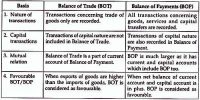Any business transaction between parties from more than one country is a part of international business. The buying and selling of goods, product or services across the national boundaries of a country are known as international business.
Social institutions, religion, language and other elements of culture affect international business. Each nation’s culture can affect business practices and international competitiveness.
- Culture –
Culture is a set of values, beliefs, rules, and institutions held by a specific group of people culture has consisted of language, religion, social institutions, political systems and philosophy, economic systems, education, and symbols. When talking about the influences of culture on international business, these aspects should be taken into account, especially the impacts from language, history, religion, and social institution, which can reflect the habits, attitudes, beliefs of the society. With the analysis of these aspects, the great impacts of culture on international trade will be clear.
- Aesthetics –
It includes what is in “good taste” in the arts, the imaginary evoked by certain expressions and the symbolism of certain colors. It is important for doing business in another culture. Appropriate colors for advertising, product packaging, and even work uniforms can enhance success.
- Values and attitudes –
Values are ideas, beliefs, and customs to which people are emotionally attached – such as honey materials, freedom, and responsibility. It is important to business as they affect the work ethic and desire for material possessions. Some culture value leisure and other value hard work. Each worker has a unique perspective on the world and has their own set of values. These can often be traced back to our experiences as children and the messages that we get from our parents and friends as we grow into adults.
A settled way of thinking or feeling about someone or something, typically one that is reflected in a person’s behavior is called attitude. Attitudes are positive or negative evaluations, feelings, and tendencies that individual labor toward objects or concepts. It differs from one country to another country because they are formed within a cultural content whereas values are rigid over time, attitudes are more flexible.
- Manners & Customs –
Manners are appropriate ways of behaving, speaking and dressing a culture. When doing business in another culture it is important to understand manners.
A custom (also called a tradition) is a law or right which is not written and is in practice since a long time and is given by our ancestors. It is anything which lots of people do, and have done for a long time. Usually, the people come from the same country, culture, time and region.
Examples of it are:
(a) In some countries, it is respectful to bow to older people.
(b) In some countries, you take your shoes off before entering the house.
(c) In some places, they sit on the floor and eat.
- Social Structure –
Embodies fundamental organizations, including groups and institutions, social relationship and resource distribution, It affects decisions, production site selection, advertising, methods and the cost of doing business. Three important elements of it are social group associations, social status, and social mobility.
- Religion –
Human values are derived from religious beliefs. Different religion takes different views of work, saving and material goods. Cultural view influences the competitiveness of companies and the pace of economic development.
- Personal communications –
Every culture has a communication system to convey thoughts, feelings, knowledge, and information through speech, action, and writing. Understanding a culture spoken language provides insight into why people think and behave in certain ways. Understanding a cultures body language avoids embarrassing messages.
- Education –
It is important for passing on traditions, customs, and values. It educates young people through schooling, parenting, religious teachings, and group memberships.















